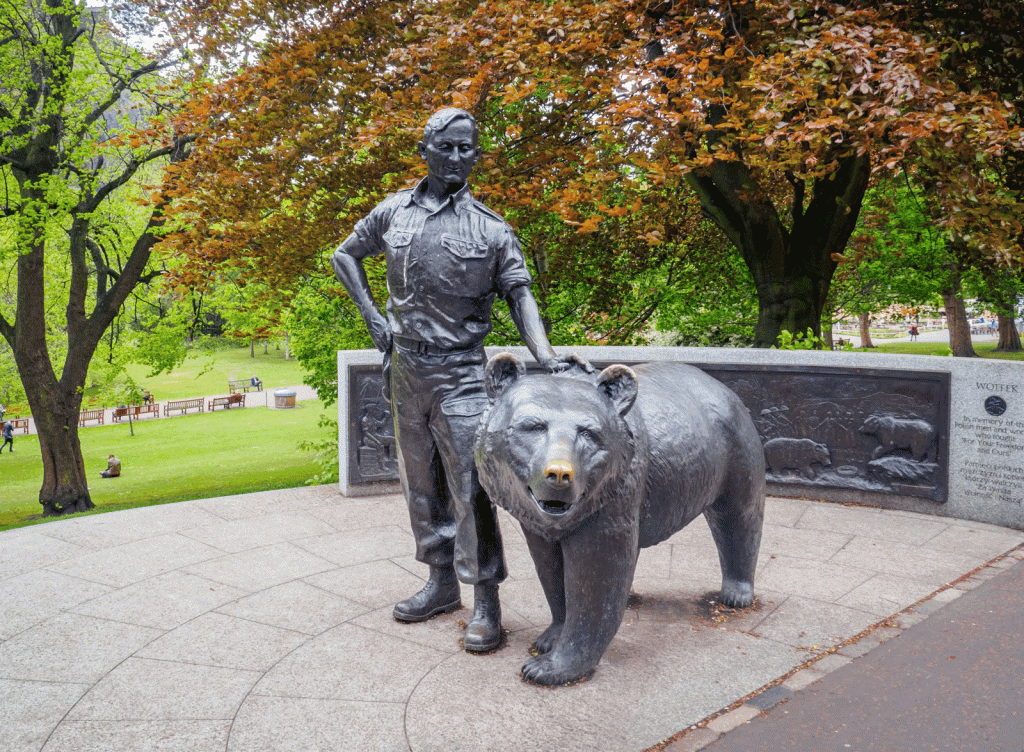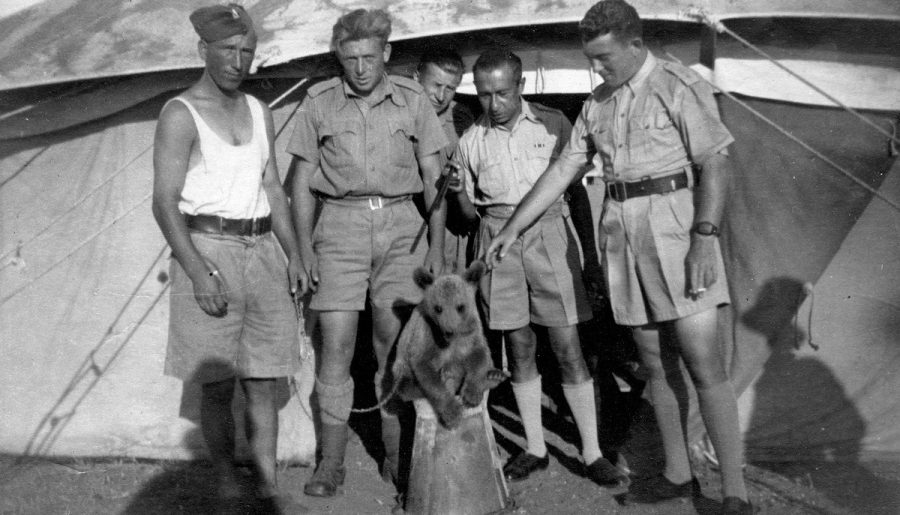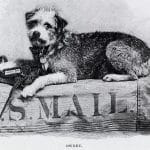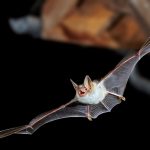During World War II, countless brave soldiers and civilians fought for their countries and sacrificed their lives for the greater good.
But among these war heroes, would you believe me if I told you that not only humans but also animals played a vital role in the war effort?
Yes, you read that right – an animal, specifically a bear!
Meet Wojtek the Bear, a 500-to-600-pound brown bear adopted by soldiers in the Polish army during World War II. The bear not only assisted soldiers during the war but also symbolized hope and courage amid the chaos.
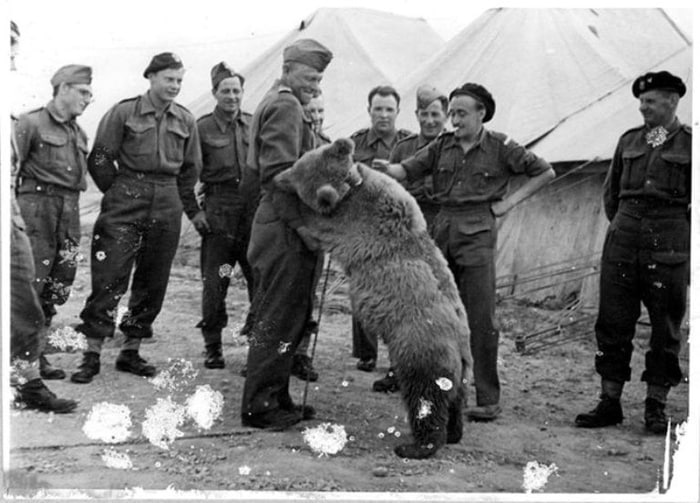
Now, you might wonder how a bear became a war hero.
Curious? Then, read on. I’ll tell you the story behind one of World War II’s most beloved war heroes.
How Wojtek Became A War Soldier Hero
During World War II, soldiers from the Polish Army’s II Corps were deployed to the Middle East with thousands of Polish civilians to fight against Nazi Germany.
While at a train station in Hamadan, Iran, Polish soldiers of the 22nd Artillery Supply Company met a young Iranian boy who had found an orphaned bear cub whose mother was likely killed by hunters.
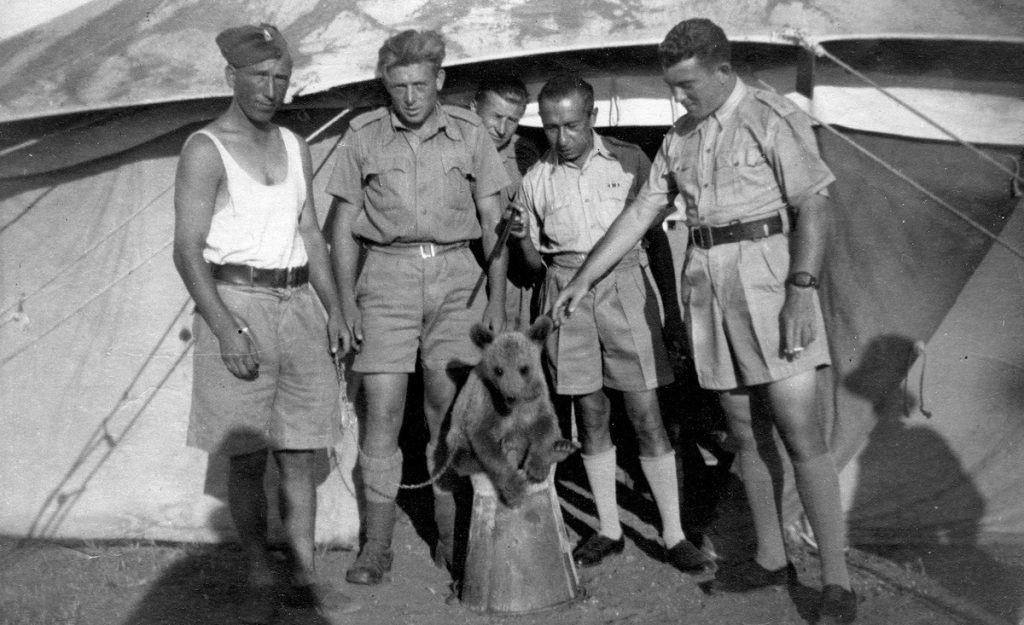
The Polish soldiers decided to buy the bear. They traded with the shepherd boy, who exchanged the Syrian brown bear cub for a Swiss Army knife, canned beef, chocolate, and Persian coins.
At first, the soldiers hid the bear cub from their senior officers. They fed him diluted condensed milk from an empty vodka bottle with a cloth as an improvised teat.
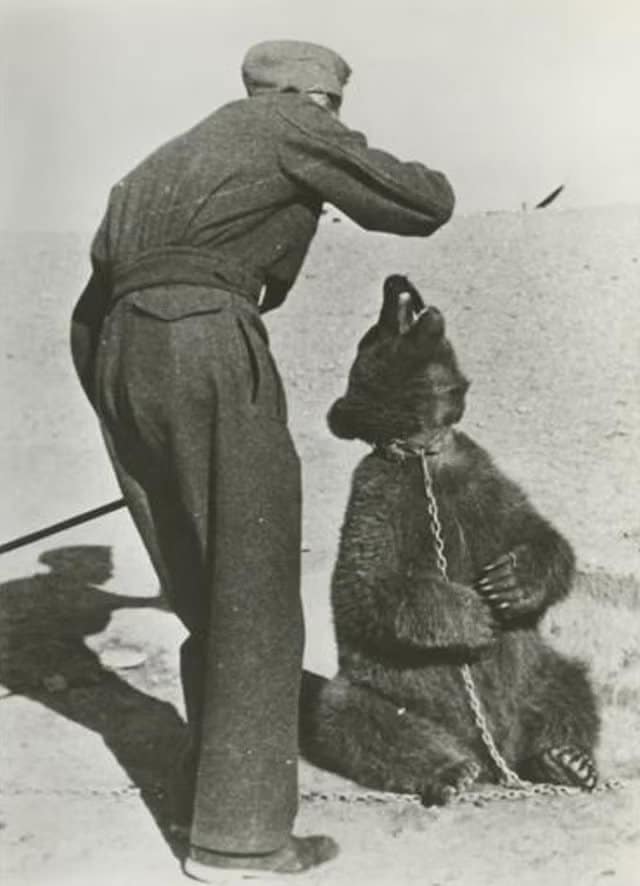
The bear also received fruit, marmalade, honey, and syrup. Believe it or not, Wojtek soon adapted to the soldiers’ habits, smoking cigarettes and drinking beer, which became his favorite drink.
In August, the soldiers donated the bear to the 22nd Artillery Supply Company. They named the bear Wojtek, a common nickname for the old Slavic name Wojciech, meaning “Happy Warrior.”
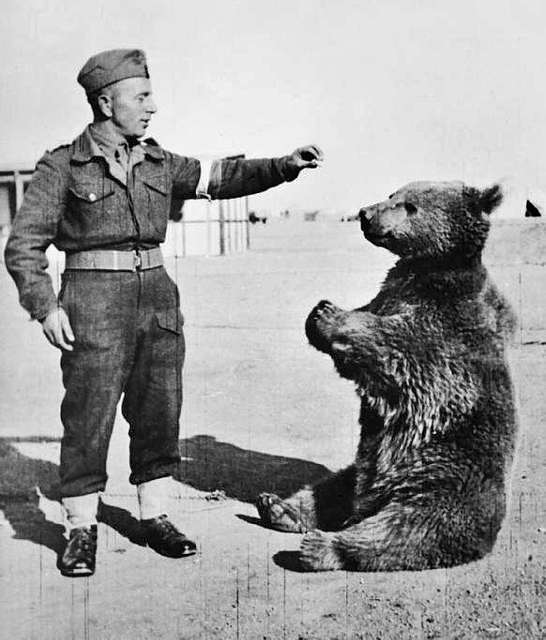
Peter Prendys, a soldier, took care of Wojtek and taught him how to perform tasks like saluting, waving, and marching.
When he wasn’t training, the bear would participate in activities like wrestling, boxing, and soccer matches with other soldiers in the camp. He would also playfully chase after oranges they pretended were grenades during training.
Wojtek also slept alongside the soldiers whenever they were cold at night. The bear became a beloved family of the soldiers and was considered a mascot for all the units stationed nearby.
Eventually, Wojtek accompanied the 22nd Company as they moved to various places such as Iraq, Syria, Palestine, and Egypt.
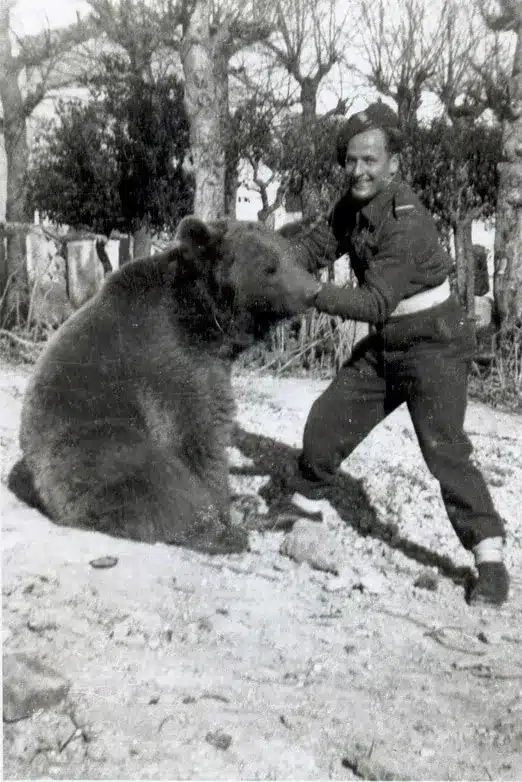
In 1944, the 22nd Artillery Supply Company encountered a problem while getting shipped to Italy to participate in the Allied military campaign.
The military had a strict rule against pet passage to war zones. However, the Polish soldiers wanted Wojtek to come with them.
To comply with the rule, Wojtek was given the rank of a private with a serial number and own paybook. He was also listed among the soldiers of the 22nd Artillery Supply Company.
Despite being a pet, Wojtek’s camaraderie boosted the soldier’s morale and made them happy.
During the Battle of Monte Cassino, Wojtek helped his unit carry 100-pound crates of 25-pound artillery shells without dropping any of them between trucks and soldiers fighting on the front lines. He would carry them with two hands while standing upright, mimicking other soldiers.
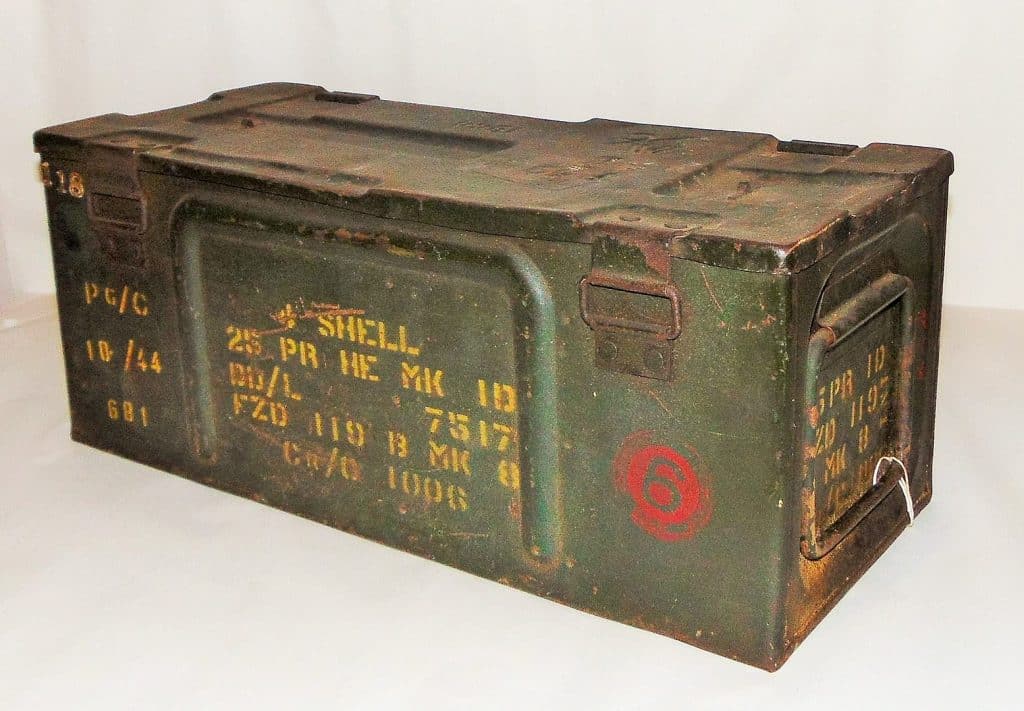
In his honor, the unit changed its emblem to a bear carrying an artillery shell. Because of his service and bravery, Wojtek was eventually promoted to the rank of corporal.

What Happened To Wojtek After The War
After the war, Wojtek and his fellow soldiers of the 22nd Company were relocated to Berwickshire, Scotland, in 1946. They were stationed at Winfield Airfield on Sunwick Farm, near Hutton, Scottish Borders.
Again, Wojtek quickly became popular among the local community and the media. The Polish-Scottish Association even awarded him the title of honorary member.
After the soldiers were demobilized on November 15, 1947, Wojtek moved to the Edinburgh Zoo, where he lived the rest of his days. He was often visited by journalists and former Polish soldiers who would sometimes throw him cigarettes to eat.
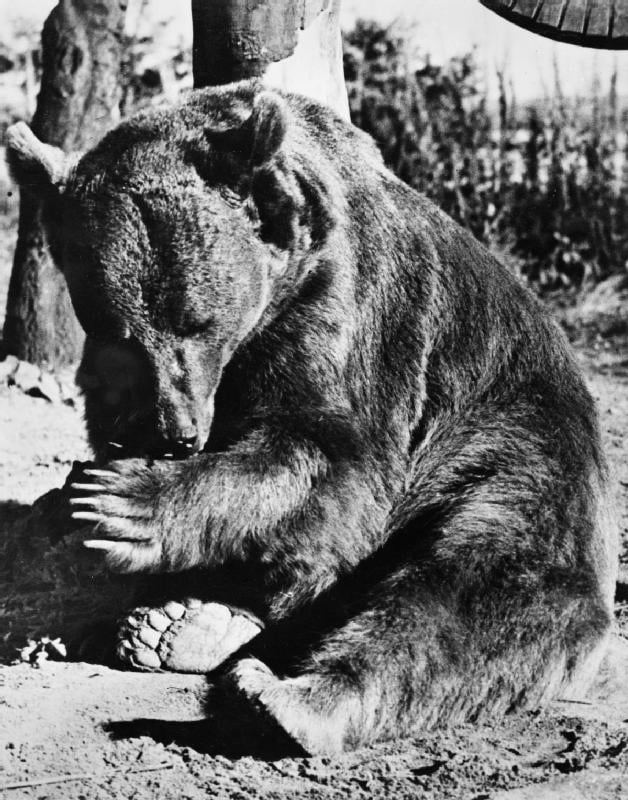
When his former comrades visited the zoo, they brought him beer, candy, and cigarettes and sometimes even climbed the fences to play and wrestle with him.
In December 1963, Wojtek died in the zoo at the age of 21.
To commemorate Wojtek’s remarkable life and contributions, a memorial of the bear was unveiled in Edinburgh’s Princess Street Gardens in November 2015. The statue stood on a platform made of Polish granite.
